New house and builder kick backs from vendors
hawami
4 years ago
last modified: 4 years ago
Featured Answer
Sort by:Oldest
Comments (84)
bry911
4 years agoThe Kitchen Abode Ltd.
4 years agoRelated Discussions
A suggestion for new home builders
Comments (15)We live in an area that has a lot of clay, as well as sand. The sight we built our house on is slightly elevated from the rest of our property and has heavy clay underneath. My husband is an engineer, and because of this he engineered a concrete pier foundation himself. In 3 years we have not shifted one inch and are as solid as a rock. Slab foundations are common in Florida. We did not remotely want one over clay. It can cause too many issues. In our area many people tried to push a stemwall foundation. We quickly rejected that as well, as we saw people having major, and very expensive issues with them in the south. Stemwalls are common "up north", and they really are for an 'up north" building situation. There is a reason all the old, and I mean old, original Florida cracker homes are still standing. They built them on a pier foundation. Granted, some of these are brick piers, and were adjusted over the years, but we've seen a form of concrete as well. The piers also allow the home to breathe, and keeps insects under control. Termites need to build a mud tube to reach a building that is not sitting on the ground, and are easily seen. It is also a fact that if trees are removed from the site a home is to be built on, that a waiting period has to pass. The ground settles, sometimes a great deal, if ALL the roots are not removed (hard to do) and as the roots rot the house will settle. A friend of mine in central Florida was told she had to wait a minimum of 3 years after some pines were removed. She still had the pines removed, but chose a tree free site for her home. We've learned the hard way over the years that somnetimes what an "expert" will tell you is not always so, including engineers and builders. There is a lot of ignorance out there. We decided we would handle everything about building this home ourselves, and though stressful at times, we wouldn't have changed doing so. This house will withstand anything except a major fire or a tornado. I am so sorry for your home issues. It is heartbreaking. I hope you will be able to find a way to correct all this without going broke. You did the best that you thought you could do, and the so called "experts" really let you down....See MoreAdvice needed on GC vs. Builder for new home contruction
Comments (13)Thanks to everyone for your comments. Today my husband and I spoke with 2 types of builders: one big box + custom and one independent and very flexible with allowances with the offer to get us better pricing on things we found on our own. We then spoke with a local architect that finalizes our plans and bids the work out to contractors. He earns his commission on the sale price of the house. We found all of them through Houzz Professionals and received responses from each one right away. With our lot we are fortunate not to be in a flood zone and builders are accustomed to extra "strapping", but no big concern or discussion on that topic. Interesting comment on the Cost Plus contracts. My RA told me directly in a meeting that Builders make their margins on appliances and finishes..at the time I interpreted that as "you wouldn't want them not to make money on the build". The other builders and architect said that there indeed are independent builders that will build on the Island (Amelia is really a northern extension of Jacksonville and on the Southern border of Georgia-not at all remote or isolated). Conclusion: When faced with a series of inconsistent feedback I know the truth is somewhere in the middle. I rather enjoy reading between the lines and sorting through the motivations behind different opinions from different people. Not saying anyone is lying, but we are being very thoughtful, observant, asking questions and researching the hell out of this project to make sure it is mutually beneficial to all parties. Other comments are welcome!!...See MoreChoosing an architect/builder for a new home
Comments (41)As long as the OP is open and transparent about his motives and preferred approach, it's up to each architectural or design-build firm that is interviewed to make their own business decision about participation or not. The open question remains, however, as to the degree to which the OP understands how conceptual design works, and the extent to which the OP is willing to work closely with and pay each of the participating firms to move through initial conceptual explorations together and then to move to a more finite schematic design. To get to a "tangible" schematic design that is responsive to a consumer's needs and wants; site and jurisdiction constrains; budget; and is a creative and rewarding architectural direction means a series of initial explorations involving stop and start-over, refine and refine again to produce the following: 1) site plan; 2) floor plans; 3) key sections; 4) elevations or perspectives and a 5) roof plan. Architects don't simply pull a rabbit out of a hat. Unlike auto manufacturers, there are no "last year models" on which new fins and a tail light can be added to market as next year's appealing model. Or the next person's house who comes along. So multiply this situation by "X" number of architectural firms and design-build firms all working at the same time on the same project! This situation is the extreme opposite of many of the posts we see here where consumers moan about the cost of architectural services and refuse professional services thinking they cannot afford the services and they don't really need them. Hopefully the OP will let us know how his process works for him....See MoreGood Idea to Paint Builder Cabinets after Closing in New Build Home?
Comments (30)On the topic of cabinet finish.. as many stated the finish from the manufacturer will far surpass an onsite paint job. It is true you seem to save if you paint yourselves, but through the upgrade option, do you also get internal upgrades? Is all the hardware soft close (hinges and drawers) Is your overlay a full or standard? Look up cabinet construction Another question -if you switched out cabinets after- is the countertop. If you plan on a solid surface, removing cabinets to switch out after the fact could be VERY expensive... 1- can the stone be salvaged, 2-If not you will have the cost of a whole new countertop! I also considered doing things to the kitchen after we moved in and opted out of that.. Boy was I glad. Life moves fast and when you move in you really want to move in. I'd go with builder and what you really want and avoid all the small surprises that will arise doing work after the fact. Good luck in your process!!...See Morebry911
4 years agobry911
4 years agolast modified: 4 years agoLaura Mouse
4 years agotiggerlgh
4 years agolast modified: 4 years agoPatricia Colwell Consulting
4 years agoshead
4 years agolast modified: 4 years agoshead
4 years agomillworkman
4 years agolindacottonwood
4 years agomillworkman
4 years agoatay284
4 years agoThe Kitchen Abode Ltd.
4 years agobry911
4 years agoThe Kitchen Abode Ltd.
4 years agoPatricia Colwell Consulting
4 years agohawami
4 years agoUser
4 years agolast modified: 4 years agobry911
4 years agolast modified: 4 years agoThe Kitchen Abode Ltd.
4 years agorobin0919
4 years agoUser
4 years agolast modified: 4 years agohawami
4 years agolast modified: 4 years agoJeffrey R. Grenz, General Contractor
4 years agolast modified: 4 years agoshead
4 years agolast modified: 4 years agoUser
4 years agolast modified: 4 years agoSabrina Alfin Interiors
4 years agolast modified: 4 years agoThe Kitchen Abode Ltd.
4 years agotiggerlgh
4 years agobry911
4 years agohawami
4 years agoSabrina Alfin Interiors
4 years agoUser
4 years agolast modified: 4 years agoJAN MOYER
4 years agoThe Kitchen Abode Ltd.
4 years agolast modified: 4 years agotiggerlgh
4 years agoUser
4 years agolast modified: 4 years agoThe Kitchen Abode Ltd.
4 years agomillworkman
4 years agohawami
4 years agolast modified: 4 years agomillworkman
4 years agoatay284
4 years agotiggerlgh
4 years agohazelcraddock
4 years agojmm1837
4 years agoJeffrey R. Grenz, General Contractor
4 years agochispa
4 years agolast modified: 4 years agoUser
4 years agolast modified: 4 years ago
Related Stories
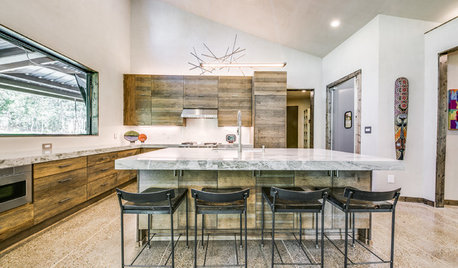
MODERN HOMESHouzz Tour: Builder Moves From Party House to Kid-Friendly Home
A Texas pro designs and builds a one-story home with a safe room and an unconventional layout just right for her family
Full Story
LIFEYou Said It: ‘Put It Back’ If It Won’t Help Your House, and More Wisdom
Highlights from the week include stopping clutter from getting past the door, fall planting ideas and a grandfather’s gift of love
Full Story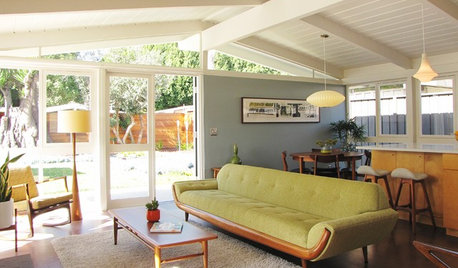
ARCHITECTURERanch House Love: Inspiration From 13 Ranch Renovations
Kick-start a ranch remodel with tips based on lovingly renovated homes done up in all kinds of styles
Full Story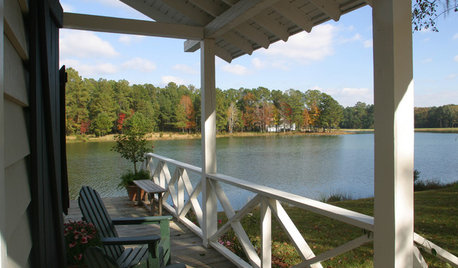
OUTBUILDINGSKicking Back in a Relaxing Lowcountry Boathouse
The hardworking nature of this multipurpose Georgia outbuilding is hidden by its laid-back vibe
Full Story
PRODUCT PICKSGuest Picks: Kick Back in Your Own Surf Shack
Beachy boho goes upscale with furniture and accessories as artful as they are relaxed
Full Story
LIFEBack to the Future of the House
Can the low-tech dwellings of the past offer design lessons for homes to come? A palace curator and book author says yes
Full Story
FRANK LLOYD WRIGHTStep Inside a Frank Lloyd Wright House Saved From Demolition
The historic Phoenix property is now part of the architect’s school at Taliesin, where it will be used as a design lab
Full Story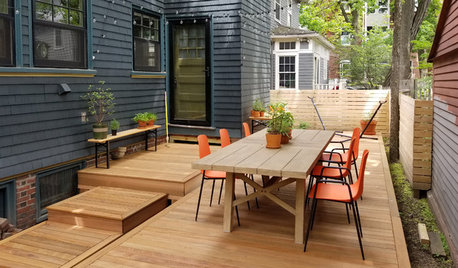
TRENDING NOWKick Back, Relax and Enjoy the Top 10 Popular Patios and Decks
Check out these trending outdoor photos to get smart ideas for shade, shelter, lighting and layouts
Full Story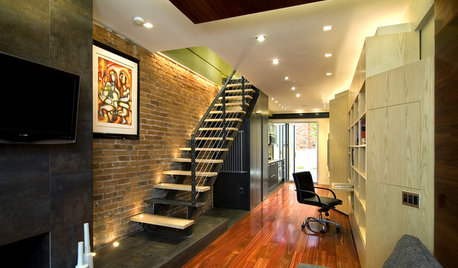
HOUZZ TOURSDesign Lessons From a 10-Foot-Wide Row House
How to make a very narrow home open, bright and comfortable? Go vertical, focus on storage, work your materials and embrace modern design
Full Story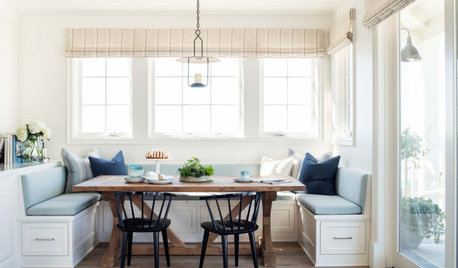
FEEL-GOOD HOMEHow to Create the Mood of a Laid-Back Beach House
Try these 10 ideas for making your home as relaxed as a vacation house
Full Story





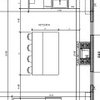

User